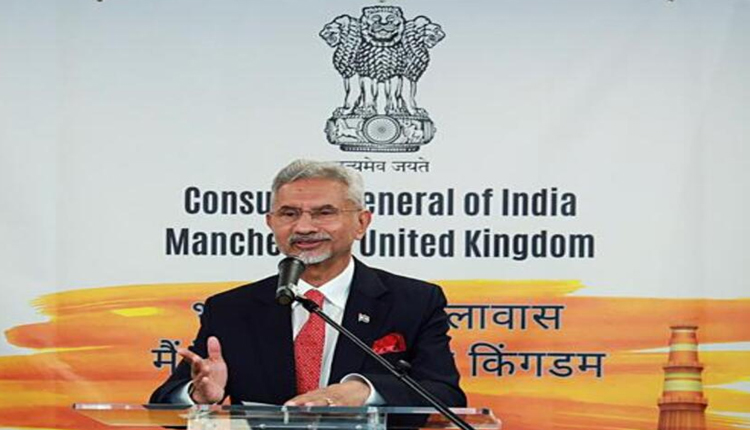New Delhi: In a world where diplomatic relations often resemble a high-stakes chess game, India’s External Affairs Minister S Jaishankar has made a bold move. Speaking at the Economic Times World Leaders Forum on Saturday, he addressed the growing closeness between the United States and Pakistan, particularly the relationship between US President Donald Trump and Pakistan’s military chief, General Asim Munir.
Jaishankar’s remarks come at a time when global attention is fixed on the delicate balance of power in South Asia, and his words carry the weight of India’s firm stance on sovereignty and bilateral dealings.
A Sharp Critique of US-Pakistan Dynamics
Jaishankar didn’t mince words while expressing India’s concerns over the deepening ties between Washington and Islamabad. He pointed out that the US-Pakistan relationship has a chequered history, often marked by mutual convenience rather than trust. Recalling the 2011 US raid in Abbottabad that led to the elimination of Osama bin Laden, Jaishankar subtly reminded the audience that Pakistan’s military had once harboured a global terrorist. “The same military that’s now being courted by the US was found wanting in Abbottabad,” he remarked, highlighting what he sees as a pattern of selective amnesia in US-Pakistan relations.
The minister also took aim at the motivations driving this renewed friendship. He suggested that the US, under Trump’s leadership, appears to be pursuing its own interests, possibly overlooking Pakistan’s history of supporting cross-border terrorism. Jaishankar’s comments reflect India’s wariness of a relationship that seems to prioritize short-term gains over long-term stability in the region.
No Room For Mediation
One of Jaishankar’s key messages was India’s unwavering stance on keeping its relations with Pakistan strictly bilateral. He emphasised a national consensus, in place since the 1970s, that India will not accept third-party mediation in its dealings with Pakistan. This was a direct rebuttal to claims by Trump, who has repeatedly suggested that the US played a pivotal role in brokering a ceasefire between India and Pakistan following a brief conflict in May 2025.
Jaishankar clarified that the ceasefire, which followed India’s Operation Sindoor targeting terrorist infrastructure in Pakistan, was negotiated directly between the military commanders of both nations. “When countries engage in conflict, it’s natural for others to express concern, but claiming mediation is a different matter altogether,” he said, dismissing Trump’s assertions. He credited the Indian military’s decisive actions, including strikes on Pakistani airbases, for compelling Pakistan to seek a truce.
Concerns Over Pakistan’s Regional Ambitions
The minister also raised alarms about Pakistan’s recent actions, particularly under General Asim Munir’s leadership. He accused Pakistan of stoking anti-India sentiments, including attempts to influence Bangladesh through diplomatic channels. Reports suggest that Pakistan’s Deputy Prime Minister, Ishaq Dar, was sent to Dhaka to engage with local leaders, including those from Jamaat-e-Islami, a group with a controversial history. Jaishankar implied that such moves are part of a broader strategy to destabilise the region, with Pakistan potentially leveraging its ties with the US to further its agenda.
India’s Economic And Strategic Priorities
Jaishankar also addressed the ongoing trade tensions with the US, particularly in light of Trump’s proposed tariffs on Indian goods. He made it clear that India’s priorities —safeguarding farmers’ interests and maintaining strategic autonomy — will not be compromised. “If you don’t want to buy our oil, don’t buy it. Europe buys it, America buys it. It’s your choice,” he stated, underscoring India’s confidence in its economic resilience.
He further highlighted the unique nature of Trump’s foreign policy, describing it as a departure from traditional diplomacy. “We’ve never seen a US president conduct foreign policy so publicly,” Jaishankar noted, suggesting that Trump’s approach is driven more by spectacle than strategy. Yet, he remained firm that India’s foreign policy will continue to be guided by national interest, not external pressures.
S Jaishankar’s remarks at the Economic Times World Leaders Forum were a masterclass in diplomatic clarity. By calling out the self-interest behind US-Pakistan ties and reaffirming India’s commitment to bilateralism, he sent a strong message to both Washington and Islamabad. As global geopolitics continues to shift, India stands firm, prioritising its sovereignty, security, and economic interests. For a nation that has long navigated complex regional dynamics, Jaishankar’s words are a reminder that India will chart its own course, no matter how the pieces move on the global chessboard.



Comments are closed.